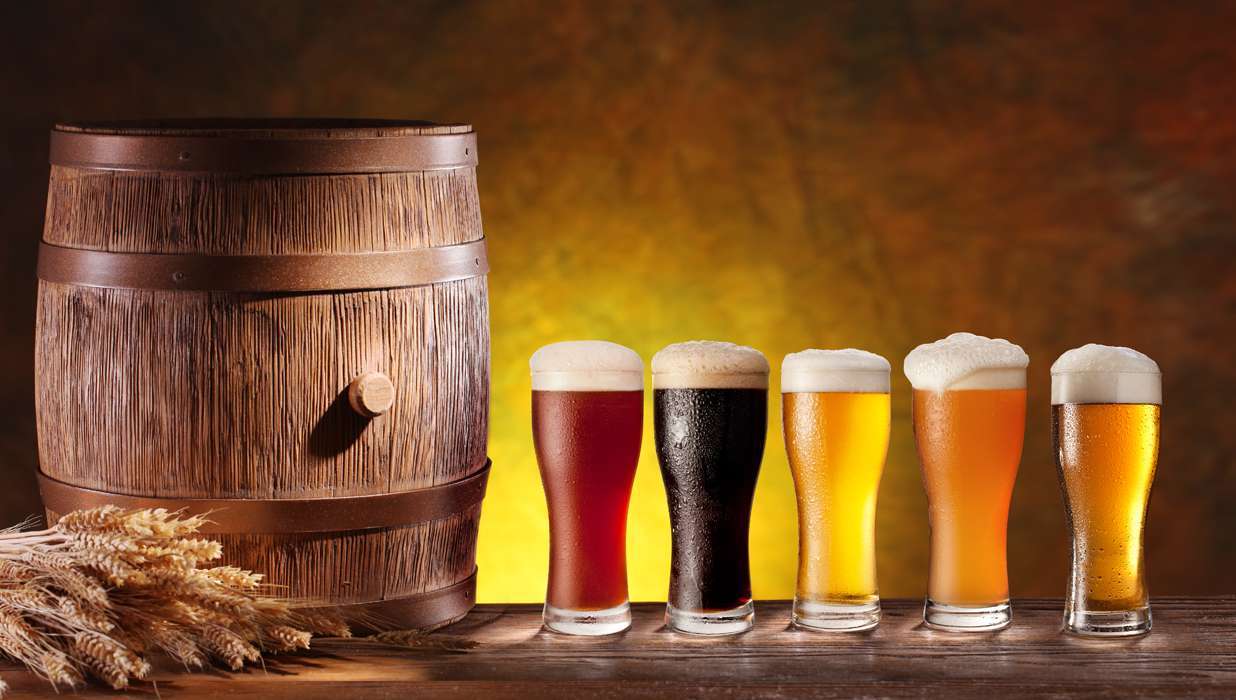After a long day, there is nothing better than kicking back and relaxing with a cold beer – and, there is nothing worse than discovering that it has passed its best. That said, there are a few ways you can keep your beer fresher for longer. Read on to find out more.
Can beer go off?
Like most food and drink, beer can indeed go off. Whereas whiskeys and wines will get better with age, and most spirits will keep for quite a long time, beer generally needs to be drunk within a few months after purchase, and must be stored correctly.
Like many rules of thumb, though, there are some exceptions. This includes things like doppelbocks and barleywine.
As the name suggests, barleywine is brewed from the same elements as beer – which is why it remains in the same category – yet it has a higher alcohol concentration more akin to wine, and thus can be kept for longer than regular beer.
Another thing that can affect how quickly beer can go off is pasteurisation. Some beer is pasteurised, in which it is ridded of harmful microorganisms, making it last longer. That said, beer is brewed using yeast as an active ingredient. As yeast is a microorganism itself, pasteurisation kills the yeast too. With this in mind, there is no wonder why some brewers choose not to pasteurise their beer.
What makes beer go off?
There are three main things that can make a beer go off – bacteria, light, and heat.
- Bacterial infection –
Even with modern, regulated sanitary brewing processes, there is a chance of a bacterial infection developing in the beer due to the fact that yeast is a living microorganism.
- Light –
If a beer is exposed to too much light, it can become ‘light struck’, which is otherwise known as ‘skunked’. This is why many beers are stored in darker-coloured bottles. Clear or green bottles will skunk the beer in a matter of minutes – however, brown bottles will still skunk the beer in under two days
- Heat –
The obvious effect of heat is that it can encourage the growth of harmful bacteria within the beer. But, though a little less serious, heat can also ruin the flavour of the beer too. The heating of the beer during the brewing process is carefully controlled so as to create the desired flavour. As such, if beer becomes too warm, the balance of the flavours will be destroyed.
How to keep it fresher for longer
Unfortunately, bacterial infections cannot be mitigated. On the other hand, the light and heat of the beer can be controlled, helping you to keep it fresher for longer – and here is how.
Keep your beer in the fridge
The best place to store your beer is in the fridge. Not only will this keep the beer at optimum temperature, prolonging its shelf life, but most beers are recommended to be served chilled. This way, you can get the most out of your beer in more ways than one!
If you don’t have space in your kitchen fridge, get a beer fridge
Most houses will have a wine rack – so why shouldn’t we also have a beer fridge? There are a plethora of mini fridges on the market that would make the perfect beer fridge. If you are an avid craft beer drinker, why not opt for one with a clear front, so that you can proudly display your collection? For those who love a can sitting on the sofa, mini fridges are small and discreet enough to nestle next to your seat.
When all else fails, find the coolest and darkest place in the house
For many, this will likely be the garage or basement. Though not quite as cool as a fridge, these places will certainly keep your beer fresher than if it was sat out on a sunny kitchen counter.
Author – Shakeel Malik


